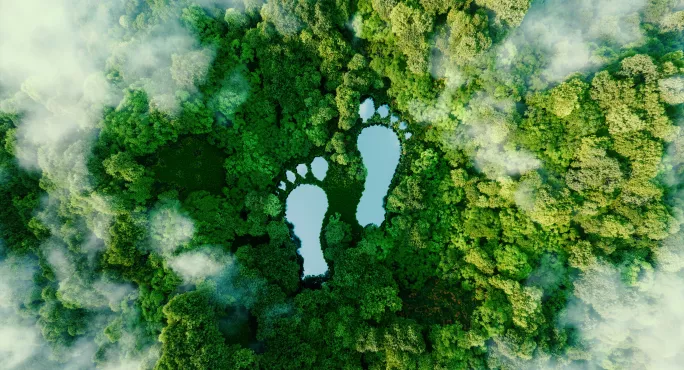New ‘natural history’ GCSE unveiled

The Department for Education is to back a new GCSE in natural history from 2025 and will roll out “greater support” for teaching climate change in schools, as part of a new sustainability strategy to be launched by Nadhim Zahawi today.
The DfE has backed proposals by exam board OCR for the new qualification as part of its sustainability and climate change strategy, due to be launched by the education secretary later today.
The department said the rollout of carbon literacy training would support “at least one sustainability lead” in every locally maintained nursery and school.
It said the training will “support settings to develop climate action plans that will bring together and drive activity to improve climate education, put in place measures to protect them against the effects of climate change and increase climate resilience through adaptation initiatives”.
- COP26: DfE unveils £5.3m green schools bid
- Climate: Schools risk teaching about ‘world that won’t exist’
- Climate change and the curriculum: What needs to change?
It added that the measures are expected to “build on the government’s pledge for every new school…to be cleaner, greener and net-zero in operation”.
Mr Zahawi will also promise “greater support for teaching climate change at all levels”, the DfE said today.
The DfE also said it plans to tender new CPD to contain content on sustainability, where relevant to the subject.
Understanding the natural world
OCR said pupils studying the new GCSE will develop a “rigorous understanding of the natural world”.
The curriculum will have a broad range, focusing on local wildlife, the environment and the ecosystem to “critical global challenges such as climate change, biodiversity and sustainability”.
The new qualification has been long called for by influential figures in the environmental sector, including naturalist Mary Colwell and the Eden Project’s Sir Tim Smit, and has cross-party backing, including Green Party MP Caroline Lucas and Conservative MP, and former teacher, Caroline Ansell.
Education is ‘key weapon’ in climate change fight
Mr Zahawi said education was one of the “key weapons in the fight against climate change”.
He added that “we should be proud” that young people are “already very committed to a more sustainable planet” and he wanted to do everything he could “to encourage this passion”.
Jill Duffy, chief executive of OCR, said the GCSE was a “wonderful opportunity for young people everywhere...to study and connect with wildlife and the natural world”.
She added that a “deeper engagement” with biodiversity and sustainability would give younger generations the tools to “understand their environment and grapple with critical challenges”.
Tim Oates, who leads assessment research and development at Cambridge University Press and Assessment, said the move was a “visionary decision” by the government and shows how “national qualifications can support vital social and economic priorities around sustainability”.
Paul Whiteman, general secretary of the NAHT school leaders’ union, said the development of a GCSE in natural history was a “very welcome step to enable and encourage pupils at key stage 4 to learn more about the natural world”.
However, he said it was “vital” that education about the environment, climate and sustainability was “embedded throughout the curriculum at all key stages”.
And Professor Justin Dillon, from the University of Exeter’s Graduate School of Education and president of the National Association for Environmental Education, said the course “will struggle to gain a foothold in an already crowded curriculum”.
“If the education secretary is serious about the need for young people ‘to gain a deeper knowledge of the natural world around them’ then he needs to ensure that all subjects in the school curriculum address environmental and sustainability issues. To do otherwise is to betray another generation of young people,” he said.
“What actually will be taught is not clear. Will they learn about the science that exposes badger culling as a failure? Will they be taught why the secretary of state for the environment, George Eustice, granted an application by the National Farmers Union and British Sugar for emergency authorisation of thiamethoxam, known to kill pollinators in huge numbers, for the treatment of sugar beet seed? Somehow, I doubt it - it will probably be good for the sales of Ladybird books but not the lives of Britain’s ladybirds.”
Last week, the DfE said bidding for a £5.3 million contract was set to open next month for the design and delivery of a National Education Nature Park and Climate Leaders Award.
You need a Tes subscription to read this article
Subscribe now to read this article and get other subscriber-only content:
- Unlimited access to all Tes magazine content
- Exclusive subscriber-only stories
- Award-winning email newsletters
Already a subscriber? Log in
You need a subscription to read this article
Subscribe now to read this article and get other subscriber-only content, including:
- Unlimited access to all Tes magazine content
- Exclusive subscriber-only stories
- Award-winning email newsletters
topics in this article



